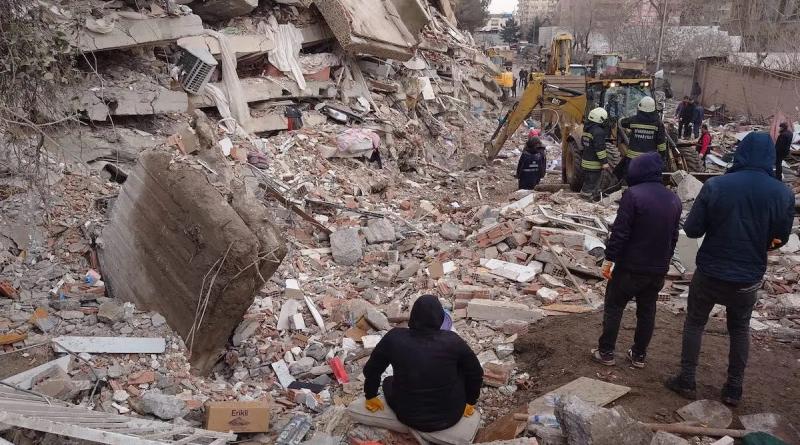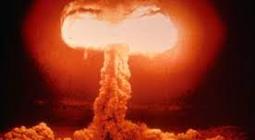The latest warning

The devastating earthquakes of February 7, with a magnitude of 7.8 in Turkey, brought to the fore the issue of the danger of the nuclear plant under construction there in Akkuyu.
The Akkuyu Nuclear Power Plant, consisting of four 1,200 MWe VVER1200 units, is being built under an intergovernmental agreement between the Turkish and Russian governments. In May 2010, Russia and Turkey signed an agreement that Rosatom would build, own and operate the 4.8 GW nuclear power plant at Akkuyu. The agreement was ratified by the Parliament of Turkey in July 2010. Construction began in 2011 and was expected to be commissioned in 2023 in celebration of the 100 years of the Turkish Republic.
The station is being built like all major projects in Turkey through non-transparent procedures with direct commissioning and guarantees from the government, just like the apartment buildings we saw crumble into rubble during the recent earthquake.
From the beginning of the construction, many technical issues were revealed: ground subsidence, serious deficiencies in the geotechnical and environmental studies, even a case of a forged design signature in 2015. Then, in January 2021, two explosions occurred at the construction site, causing interventions in the European Union where MEP George Georgiou submitted a pertinent question to the European Commission, while the Minister of Foreign Affairs Nikos Dendias also took similar actions without a response.
Unfortunately, as demonstrated by the Classification Vote (on including nuclear power in the green taxonomy) in the European Parliament, the nuclear lobby prevails in the EU today, despite the justifiable alarm among European citizens caused by the war in Ukraine, due to the presence of the Chornobyl and Zaporizhzhia nuclear plants in the war zone.
On January 10, 2021, Kemalist Republican People’s Party (CHP) MP, Mahir Basasir, tweeted that seawater was seeping through the concrete floor of the Akkuyu station. But even if the nuclear plant were structurally safe, such strong earthquakes can cause damage to the piping, so a Fukushima-style disaster is to be expected.
In Fukushima, we saw radioactive contaminated water pouring into the Pacific ocean and pollution has now been measured in the Atlantic as well. The Mediterranean is a closed basin and a similar disaster would turn it into a Dead Sea.
Additional risks arise with radioactive waste because Turkey is not a party to the IAEA (1997) treaty on the safe management of nuclear waste, and, in the Agreement with Rosatom, Russia retains the right to return the irradiated highly radioactive waste fuel to Turkey, after five to 10 years, for dry storage.
The recent earthquakes are an opportunity to stop this madness again. After all, this is not the first time that citizens have managed to reason with their leaders on this matter.
The nuclear era in Turkey began in 1969 when Demirel decided to build a 3,000MW nuclear plant. Ecevit approved a bid from the Swedish ASEA — Atom Metex — but the agreement ended due to problems within the company. Because the nuclear lobby has always been powerful, three companies, from Switzerland, France and Germany, immediately bid and in 1975 the Akkuyu site, 25 km from an active seismic area, was chosen.
In 1985, an agreement was signed with the Canadian AECL for a capacity of 7,000 MW, causing many negative reactions both in Turkey and in the Mediterranean, Europe and Canada, especially after the deadly 6.3 earthquake of June 27, 1998 in Adana, whose epicenter was 136 km east of Akkuyu .
This, along with the 1986 Chornobyl nuclear disaster, prompted a rapid mobilization of citizens, including in Greece, where a press conference was held in Athens on September 28, 1998 with the Greek-Canadian MP and scientific director of the “Nuclear Awareness Project”, David Martin, as the speaker.
Further concerns were raised after the even larger earthquake of August 17, 1999 in the Kocaeli Province of Turkey, with a catastrophic magnitude of 7.6. It caused enormous damage and led to more than 18,000 deaths.
Thanks to the reactions of citizen activists and due to the enormous financial costs, the construction of Akkuyu was canceled in 2000. However, President Erdogan, who does not hide his nuclear ambitions, decided in 2010 to revive it using Russian financing and know-how. Ground was broken for the first of the four reactors in April 2018. Groundbreaking for the fourth reactor took place in July 2022.
Although the nuclear lobby argues that it provides cheap and sustainable energy production, Akkuyu refutes this.
With an estimated cost of $20 billion, the Akkuyu nuclear power plant is one of the most expensive for an estimated lifetime of 60 years. Its construction and operation for the first 20 years is under the exclusive control of Rosatom. Although control of the power station will pass to Turkey after that, 51% of the shares will remain with Rosatom.
The claim that Akkuyu will provide cheap energy is also not true. With the Akkuyu deal, Turkey has guaranteed to buy electricity at a weighted average price of 12.35 to 15.33 US cents/kWh for at least 15 years, while Turkey’s average power purchase price is 4.4 cents/kW currently.
For those wondering why Erdogan supports unsafe, expensive and dirty nuclear power, the answer lies in his statement in 2019, at an AKP conference, where he told the audience it was unacceptable to prevent Turkey from acquiring nuclear weapons. “Some countries have missiles with nuclear warheads, not one or two. But (they tell us) we can’t have them. This, I cannot accept,” he said.
Although after the experience of India and Pakistan, who went from nuclear reactors to nuclear everything, the process has become more difficult, Erdogan apparently hopes that the three planned nuclear plants (Akkuyu, Sinop, Iconium, all in seismic areas of military interest) will allow Turkish scientists to be trained in the relevant fields.
As happened after the deadly earthquakes of 1998 and 1999, we hope today that the politics of peace will prevail, that the disastrous nuclear course for the Mediterranean will stop and that the nuclear plant in Akkuyu will remain on the drawing board.
This article is a translation from the Greek of Maria Arvanitis Sotiropoulou’s blog. A retired doctor, she is the President of the Greek affiliate of International Physicians for the Prevention of Nuclear War.
Headline photo of February 2023 earthquake damage in Turkey by Voice of America/Wikimedia Commons.
The opinions expressed in articles by outside contributors and published on the Beyond Nuclear International website, are their own, and do not necessarily reflect the views or positions of Beyond Nuclear. However, we try to offer a broad variety of viewpoints and perspectives as part of our mission “to educate and activate the public about the connections between nuclear power and nuclear weapons and the need to abandon both to safeguard our future”.




